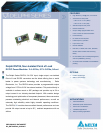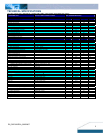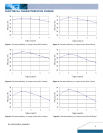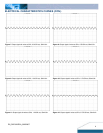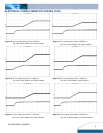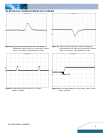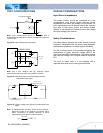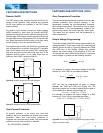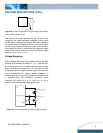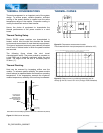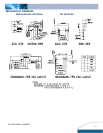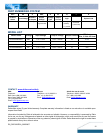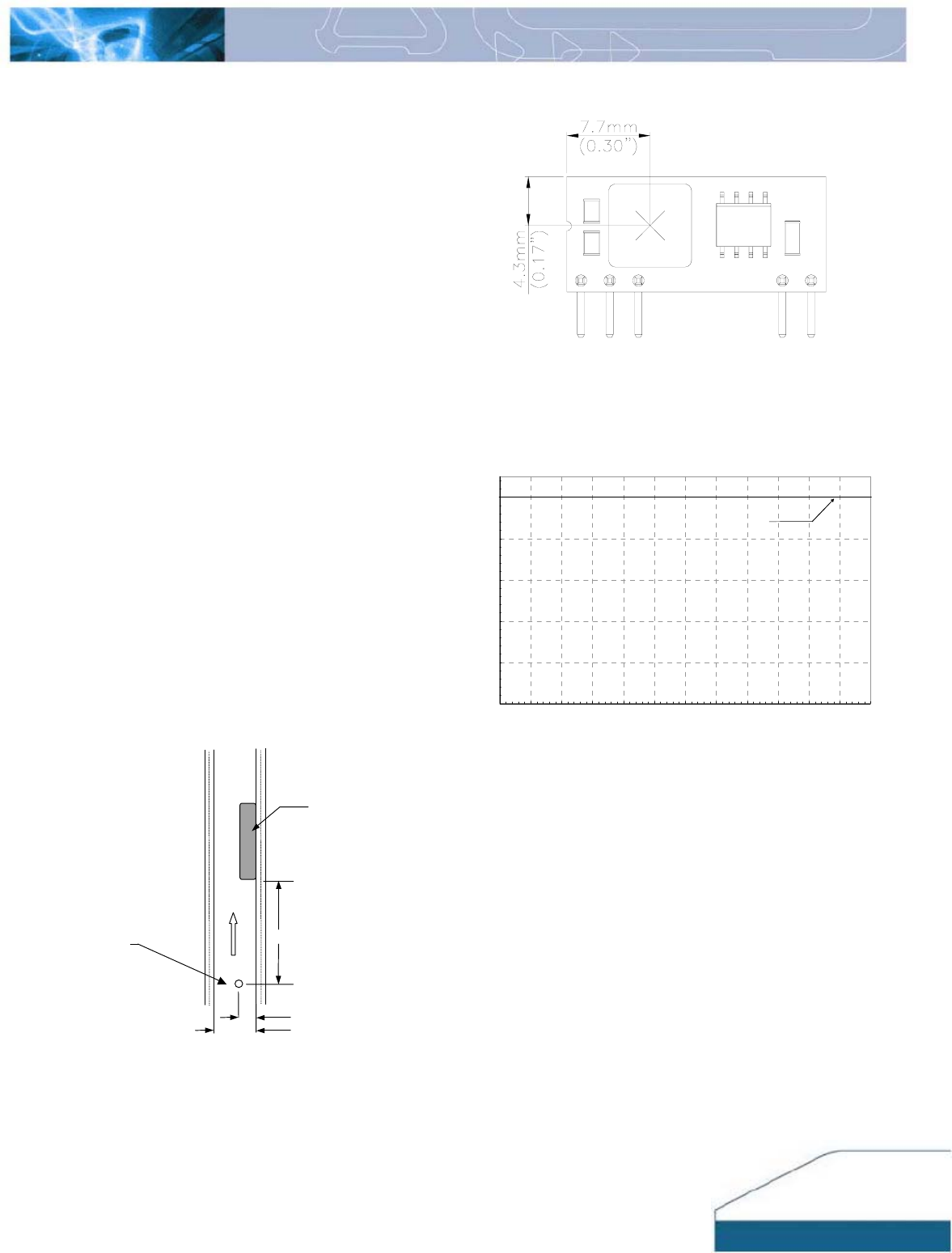
DS_DNT04SIP5A_09252007
10
Note: Wind Tunnel Test Setup Figure Dimensions are in millimeters and (Inches)
THERMAL CURVES
Figure 32: Temperature measurement location
The allowed maximum hot spot temperature is defined at 125
℃
Figure 31: Wind tunnel test setup
THERMAL CONSIDERATIONS
Thermal management is an important part of the system
design. To ensure proper, reliable operation, sufficient
cooling of the power module is needed over the entire
temperature range of the module. Convection cooling is
usually the dominant mode of heat transfer.
Hence, the choice of equipment to characterize the
thermal performance of the power module is a wind
tunnel.
Thermal Testing Setup
Delta’s DC/DC power modules are characterized in
heated vertical wind tunnels that simulate the thermal
environments encountered in most electronics equipment.
This type of equipment commonly uses vertically mounted
circuit cards in cabinet racks in which the power modules
are mounted.
The following figure shows the wind tunnel
characterization setup. The power module is mounted on
a test PWB and is vertically positioned within the wind
tunnel. The height of this fan duct is constantly kept at
25.4mm (1’’).
Thermal Derating
Heat can be removed by increasing airflow over the
module. To enhance system reliability, the power module
should always be operated below the maximum operating
temperature. If the temperature exceeds the maximum
module temperature, reliability of the unit may be affected.
MODULE
A
IR FLOW
12.7 (0.5”)
50.8
(
2.0”
)
FACING PWB
PWB
AIR VELOCITY
AND AMBIENT
TEMPERATURE
MEASURED BELOW
THE MODULE
25.4 (1.0”)
DNT04S0A0R05(standard) Output Current vs. Ambient Temperature and Air Velocity
@Vin=5V Vout=0.75~3.3V (Through PCB Orientation)
0
1
2
3
4
5
25 30 35 40 45 50 55 60 65 70 75 80 85
Natural
Convection
Output Current (A)
Ambient Temperature (℃)
Figure 33: Output current vs. ambient temperature and air
velocity @ Vin=5V, Vout=0.75V~3.3V(Through PCB Orientation)



